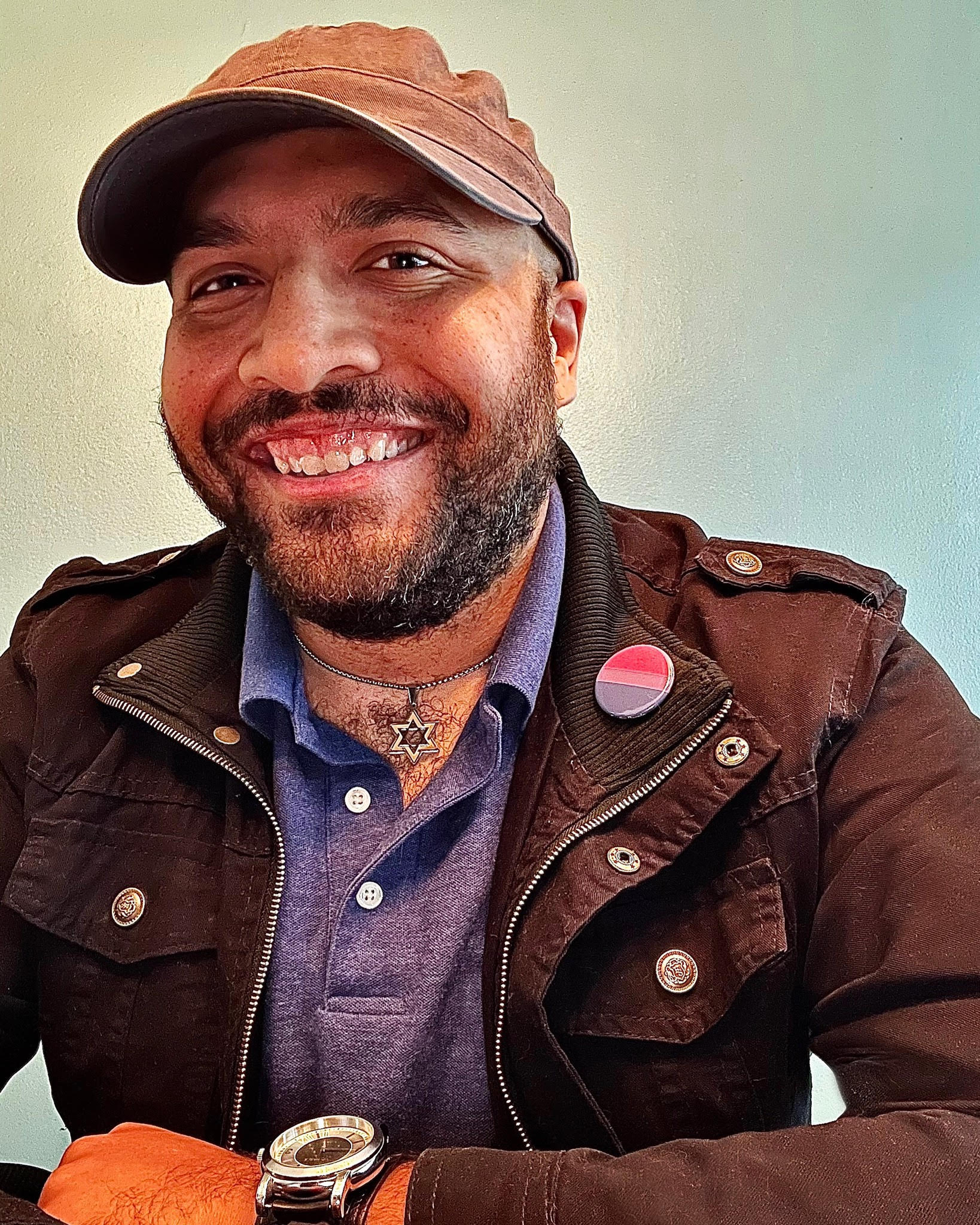
By Chaim Ezra Harrison
Content Note: Discusses anti-LGBTQ bullying and suicide.
“They tried to bury us, but they didn’t know we were seeds.”
Very recently I learned who originally said this quote. It was Dinos Christianopoulos, a gay Greek poet, of blessed memory. His proverb became a rallying cry for marginalized and persecuted people of many different backgrounds, and I’ve seen it quoted or paraphrased more times than I can count.
Tu Bishvat, commonly known as the “new year for the trees,” is upon us. Many Jews take this day to recommit ourselves to environmental justice, ponder the esoteric and Divine meanings of trees and their fruit, host fun seders for their families, or all of the above. In Judaism, trees are often used as metaphors for human beings. I’m reflecting on my story as a Jew who is also openly bisexual. Many different folks and forces have attempted to “bury” me and those like me, but we grow and thrive against every single odd.
Ever since elementary school, I knew that I was different. I developed crushes on my peers of different genders. Some of the adult leaders in my life and my church made it clear that this was not okay. “You’re confused, you’re going through a phase, you have to pray these thoughts away every single night.” Regardless of intent, I was made to feel like I was rotten down to the heartwood.
Three years later, when I started junior high, I was enrolled in a fundamentalist Christian school, most likely to cure me of my “heart rot.” I had prayed every night for God to cure me, and it didn’t work. Maybe being relentlessly bullied, ostracized, and force fed right-wing Biblical literalism by abusive and hypocritical zealots six days a week would do the trick. Spoiler: It didn’t.
None of my teachers ever suspected that I was bisexual; if they did, they would have expelled me. However, the homophobia and transphobia in that school made me hate myself to the point of even briefly considering suicide. From educators calling queer people “sinners” and “predators” to my classmates wanting to beat up “f*gs”, they tried to convince me that I was an abomination in the eyes of God.
And then, I went to college. Finally, I was in an environment where I wasn’t being told that God wanted to cast me into a lake of fire. I had friends and instructors who were actual allies or queer themselves. I even got the chance to explore Judaism for the first time at Hillel Shabbatot. I began to heal from the trauma of my fundamentalist education, and I found comfort in an environment where people weren’t judged for their queerness.
While I wasn’t yet ready to fully come out of the closet – it would be almost a decade later – I realized that the only “heart rot” I had was caused by others who refused to understand me.
“They tried to bury us” clearly has a negative connotation, but there is more than one way to read it. My queerphobic fundamentalist school, and my queer-positive university, both “buried” me, albeit in very different ways. The teachers and students in my fundamentalist school saw me and my identity as a threat, and trampled me into the mud for simply being myself. My college friends and professors, however, surrounded me with soft, well-nourished soil and “watered” me by affirming me for who I was, even though I wasn’t completely ready. I was loved and treated as a seed with the potential to grow and share fruit. Instead of being buried in shame, I was being nurtured with care. Some seeds are not ready to sprout right away, and need time in the dark to feel the sun filter through. I’m glad I had the time and the care to heal and grow at my own pace.
Today I am a member of the Jewish people who is openly, flamingly bisexual. I am proud to share my story and help elevate the stories of other LGBTQ Jews. This reality seemed literally unachievable when I was a child. I get to use my skills and passions to make this country a safer and more just place for LGBTQ people, and help provide children and teens with the affirming resources and environment I so desperately needed when I was their age. I have deep roots and am stretching out my branches in a forest of allies and friends. I am overwhelmed with gratitude in the purest possible way.
This Tu Bishvat, if you are still processing and coming to terms with your LGBTQ identity, know this: you are not an affront to the Divine. You are destined to share fruit with others who need it more than you can imagine. No matter what others may say to you – a teacher, a parent, or an Internet troll – you are a seed. Treat yourself as such and I can’t wait to see the fruit you bear.
Chag sameach.

Chaim Ezra Harrison (he/him) brings his experience in content creation, dedication to LGBTQ equity, and love of storytelling to Keshet as the Communications Manager. Before joining Keshet, Chaim served as a Writer/Editor at the Union for Reform Judaism and the Senior Copywriter at the digital marketing firm Ignite. He also provides consulting as a branded content writer, essayist, and script editor. Chaim earned his B.A. in Creative Writing from Miami University and his Certificate in Jewish Leadership from Spertus Institute and Northwestern University. Chaim is also a Professional Certified Marketer® (PCM®) and Certified Digital Marketing Professional (CDMP) with dual certification from the American Marketing Association and Digital Marketing Institute. Chaim lives in the metro Detroit area with his wife and four pets and is passionate about screenwriting, Kabbalah, and everything related to owls.
Keshet shared five reflections from queer Black Jews to honor the confluence of Tu Bishvat and Martin Luther King, Jr. Day in 2022. Click here to view the whole collection!